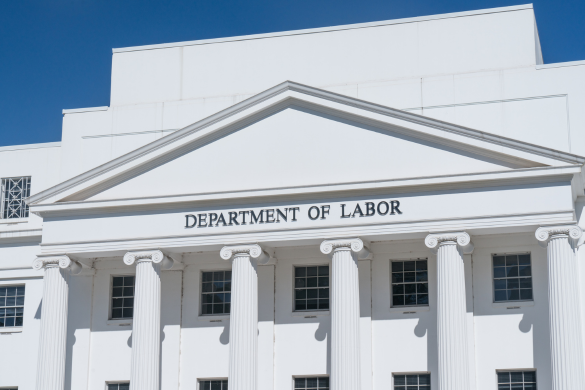The Maryland federal district court has just issued an important decision in a case brought by several current and former waitstaff employees of the Green Turtle restaurant, seeking owed wages and overtime. In addition, the waiters and waitresses were able to get the case treated as a "collective action", where other employees were allowed to join the case. The case is Craig Dorsey, et al v. TGT Consulting, LLC, et al.
Because of the significance of this case, our post here will be longer than most.
I. The Tip Credit The Fair Labor Standards Act ("FLSA") requires covered employers to pay "nonexempt employees" a minimum wage for each hour worked, but allows employers to pay less than the minimum wage to employees who receive tips, 29 U.S.C. § 203(m). Tipped employees are required to receive at least the minimum wage, but their employers are permitted to pay a direct wage of $2.13 per hour and then take a 'tip credit' to meet the $7.25 per hour minimum wage requirement. 29 U.S.C. § 203(m). An employer satisfies the FLSA if it pays his tipped employees at least $2.13 per hour, and that wage, in conjunction with the tips they receive, make up at least the $7.25 per hour minimum wage. Two additional requirements must also be met for an employer to take advantage of the FLSA’s tip credit rule. First, the employer is required to inform the employee that the tip credit is being claimed and used by it in setting wages. Second, the employer must allow its employees to retain all tips that they receive. 29 U.S.C. § 203(m). Courts have established the following principles in deciding a tip credit case:
- The FLSA tip credit requirements must be strictly construed against the employer.
- Although an employer need not explain the tip credit to an employee, at a minimum, an employer must inform its employees of its intention to treat tips as satisfying part of the employer's minimum wage obligations.
- It is not sufficient that employees be aware of the tip credit provisions; rather, section 203(m) affirmatively requires employers to inform employees of the provisions contained in section 203(m) that permit an employer to treat tips as satisifying part of the minimum wage requirement and that employees retain all tips.
- An employer is not eligible to take the tip credit, and will be liable for reimbursing an employee the full minimum wage that employee would have earned, if the employer exercises control over a portion of the employee's tips.
- The employer bears the burden of demonstrating that it is entitled to claim the FLSA's tip credit.
The U.S. Department of Labor, the federal agency that enforces the FLSA, had not until May 5, 2011, published any regulations about how to interpret the tip credit statutory requirements. In May 2011, the Department of Labor published a new regulation on this subject, codified at 29 C.F.R. § 531.59(b). This regulation includes a more detailed notice requirement than courts had previously mandated. In relevant part, the new regulation states that “an employer is not eligible to take the tip credit unless it has informed its tipped employees in advance... that all tips received by the tipped employee must be retained by the employee.” Courts have ruled that, under the new regulation, it is not sufficient that employers allow the employee to retain all tips he or she received; rather, employers must also inform employees of the requirement that they must be allowed to retain all of the tips. In the case before the Maryland federal court, the employer attempted to get the case thrown out before trial by arguing that it had provided adequate notice to employees of the tip credit. The employer argued that the employees' biweekly earning statements functioned to inform plaintiffs of the tip credit because the earning statements showed a higher wage when no tips were reported, thus allowing employees to compare statements and draw the appropriate conclusion. The Court rejected the employer’s argument, noting that the earnings statements contained no reference to the federal minimum wage. Therefore, the earnings statements could not alonehave informed employees that their tipped wage was subminimum or that a certain percentage of their tips were being applied to meet federal minimum wage requirements.
The employer next tried to argue that the employees were orally informed about the tip credit. The Court rejected this argument too, citing to deposition testimony of employees that they were not orally told about the tip credit as required.
As a result of the Court's rule, the case is heading to trial.
If you are an employee that receives some of your wages in tips, you should make sure that your employer is complying fully with the tip credit rules. If the employer is not, you may be leaving money on the table.
II. The Collective Action
Prior to the Court’s recent decision in this case, the employees were able to get the case treated as a "collective action" – sometimes mistakenly referred to as a "class action." In a FLSA collective action case, the Court sends out notice to similarly situated employees whom also may be entitled to wages from the employer. In the Green Turtle case, more than 60 employees opted into the case.
The employer, after discovery closed and before trial, tried to get the Court to "decertify" the collective action – meaning that each employee who opted into the case would have to pursue his or her matter in a totally different lawsuit. The employer lost on all of its arguments for decertification.
First, the Court found that the employer could not avoid the collective action by claiming that it did not have a national uniform policy with respect to the tip credit and that decisions about tip credit application were made on an ad hoc, decentralized basis. The Court noted that the employer had no uniform written policy showing tip credit compliance and stated that the employees had sufficiently proven that the employer had a uniform overall policy of violating the FLSA by having a hiring process that did not include the proper tip credit information to employees.Second, the Court held that the case was still appropriate for collective action treatment, even if some employees were more aware of the tip credit process than others. The Court reasoned that different levels of "awareness" are irrelevant to the tip credit analysis and that the FLSA requires that the employer actually inform employees about the tip credit in the correct manner.
Third, the Court ruled that principles of fairness and process favored the case continuing as a collective action. Because the damages for each individual employee were "relatively low", the Court noted that individuals likely would not pursue their cases alone due to the significant costs involved in federal court litigation compared to the damages owed.
We will blog more on this case as developments occur.












